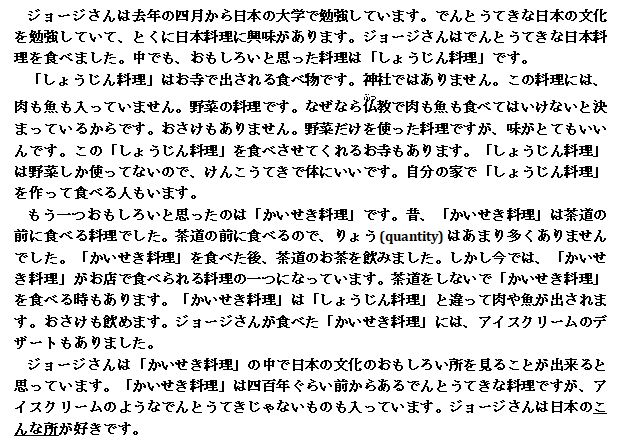Volere, potere, dovere. Ci sono molte cose che Roberto e Federica vogliono fare ma non possono perché devono fare qualcos’altro. Completa le frasi usando la forma corretta del verbo volere dove c’è (v), potere dove c’è (p) e dovere dove c’è (d).
Esempio: Roberto (v) vedere la partita in TV ma non (p) perché (d) studiare per l’esame.
Roberto vuole vedere la partita in TV ma non può perché deve studiare per l’esame.
Tu e Federica (v) _______________ andare a fare spese ma non (p) _______________ perché Federica (d) _______________ andare dal parrucchiere.
volete/potete/dovete
You might also like to view...
What does Buddhism say about food? Answer the following questions in English.

Identify the adjectives and the adverbs in the following sentences;
I need to purchase several items at the grocery store? What will be an ideal response?
Identify the adjectives and the adverbs in the following sentences;
Katie's dog has an exceptionally loud bark. What will be an ideal response?
Which of the following refers to a technical description?
a. Manufacturers use these to describe their products for patents, quality control, and sales. b. These describe a product in great detail, providing exact information about features, dimensions, power requirements, capacities, and other qualities. c. Naturalists, anthropologists, sociologists, and others use these to help them accurately describe people, animals, and places. d. Scientists and medical personnel describe what they observe in great detail, so they can measure changes in their patients’ conditions.